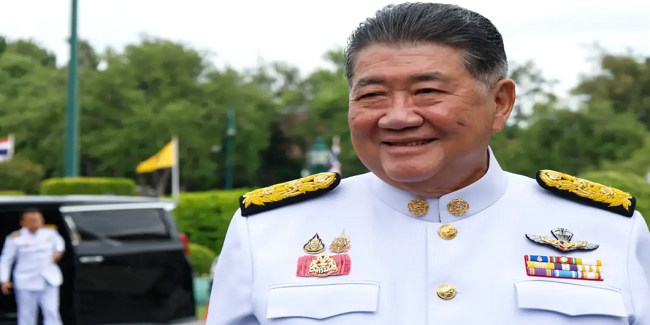
UN experts urge Thailand not to deport 48 Uyghurs to China
Experts in human rights from the United Nations have called on Thailand to refrain from returning 48 Uyghurs in their custody to China, cautioning that they face the potential for torture, mistreatment, and “irreparable damage” if sent back. In recent days, human rights organizations and certain Thai legislators have expressed alarm that the imminent transfer of the Uyghurs, who have been confined in immigration detention for over a decade, was approaching. Nonetheless, the government has asserted that such plans do not exist. Advocacy groups accuse the Chinese government of extensive violations against Uyghurs, a predominantly Muslim ethnic group numbering around 10 million in the northwestern region of Xinjiang, including the extensive deployment of surveillance and forced labor within camps. The Chinese government denies any wrongdoings. “These individuals should not be returned to China,” stated UN Human Rights Special Rapporteurs in a declaration on Tuesday regarding the 48 Uyghurs. “Instead, they must be given access to asylum processes and other humanitarian support,” the experts indicated, noting that half of the group suffers from significant health issues. Last week, Thai Deputy Prime Minister Phumtham Wechayachai declared there was no imminent plan to expel the Uyghurs to China, while the national police chief Kittirat Panpetch confirmed on Monday that there had been no government directive concerning their deportation. Babar Baloch, a spokesperson for the UN refugee agency, mentioned last week that Thai officials had assured them that the Uyghurs would not be dispatched to China. China’s embassy in Thailand did not promptly reply to a request for comment on Wednesday. Incoming US Secretary of State Marco Rubio asserted during his confirmation hearing last week that he will leverage the US’s strong ties with Thailand to prevent the return of the Uyghurs. Long-term Detention The detainees were part of a larger assembly of 300 Uyghurs who fled China and were apprehended in Thailand in 2014. Thailand repatriated over 100 Uyghurs to China in July 2015, triggering global condemnation and fears that they might face torture upon their return. Their subsequent fate remains unclear. More than 170 others, primarily women and children, were relocated to Turkey in June 2015, leaving over 50 Uyghurs still in Thai detention. At least five of these detainees have since died, according to human rights organizations. At that time, Chinese authorities contended that many Uyghurs fleeing to Turkey via Southeast Asia intended to bring jihad back to China, alleging that some were linked to “terrorist activities.” Throughout the years, hundreds, perhaps thousands, of Uyghurs have evaded Xinjiang by secretly traveling through Southeast Asia to Turkey. Diplomats and security analysts indicated that Thailand’s 2015 repatriation of Uyghurs to China was connected to a fatal bombing a month later at a shrine in Bangkok that resulted in 20 deaths, marking the deadliest attack of its kind on Thai soil. Thai authorities concluded that the assault was related to their efforts against a human trafficking network, albeit without explicitly connecting the incident to the Uyghurs. Two ethnic Uyghur men were apprehended and charged with murder and illegal possession of explosives, and their trial, which has faced several delays, is ongoing.
UN experts urge Thailand not to deport 48 Uyghurs to China Read More